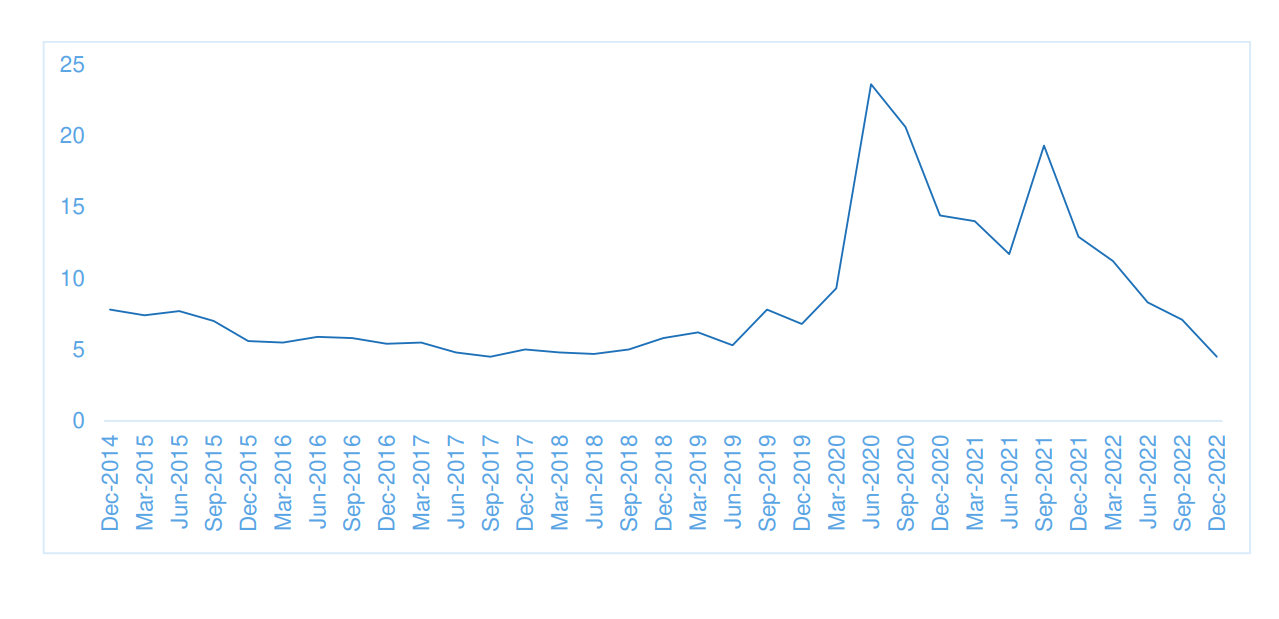
Home Construction Collective’s co-founders spoke with The Agenda podcast to explain why homes are so expensive and how decentralized finance might provide an answer.
The prices of houses are sky-high all around the world, and homebuyers are feeling the pain. While affording a home has never been more difficult for many people, the ability to raise funds to construct new homes has never been easier, thanks to decentralized finance (DeFi). The newly launched Home Construction Collective is attempting to leverage blockchain’s coordination and fundraising potential in an effort to fund the construction of, and therefore increase the supply of, affordable homes.
On Episode 14 of The Agenda podcast, hosts Jonathan DeYoung and Ray Salmond speak with Home Construction Collective co-founders Isaac Lidsky and Erich Wasserman about the housing crisis and how blockchain technology may offer a solution.

Unpacking the housing crisis
According to Lidsky and Wasserman, the housing crisis is not truly a crisis of prices — instead, it’s a supply crisis. “We have systematically underproduced homes for decades,” Lidsky said. “Depending on what estimates you look at, we’re short between 4.5 million to 7 million homes today.” Exacerbating this problem is that more and more homes are being built specifically to be rented out rather than sold to prospective homeowners.
The lack of affordable homes has profoundly impacted the net worth of younger generations. “Home ownership is usually the biggest investment that people make in their lifetimes,” said Wasserman. “It’s the gateway to financial access. Homeowners have a staggering 40 times the net worth of renters.”
Related: Tokenized mortgages can prevent another housing bubble crisis, says Casper exec
Lidsky added: “In their 40s, the baby boomers accounted for 21% of all wealth. In their 40s, Gen Xers, it had dropped to 2%. And for us millennials, we’re at 4.8%, with Mark Zuckerberg alone representing 2% of that 4.8%. And those are the horrendous numbers.”
Using DeFi to incentivize starter home construction
Home Construction Collective is focused on financing the construction of “starter homes,” or homes that first-time buyers can afford, which Lidsky reported are in incredibly short supply. “The more of them we can put on the market, the more affordable they’ll become,” he posited.
To help achieve this goal, the project fractionalizes the investment process, allowing people from around the world to invest in the construction of a new home and profit once it sells. Wasserman broke down the project’s mission in this regard:
“The problem we’re trying to solve and the thing we’re trying to do is to broaden investor access to these assets, which have been the, really, exclusive domain of regional banks and private lenders. And we’d submit they’ve not done a terribly good job over the last decades in keeping up with demand.”
Lidsky and Wasserman also co-founded a protocol called Rigor, which uses blockchain to streamline the construction supply chain and payment process. Lidsky said that by using Rigor, the cost of manufacturing the homes financed by Home Construction Collective is reduced:
“In the background, we’re also, at the pace of innovation in Web3, moving smartly to sort of further develop our tools ultimately to bring down the cost to produce these homes, bring down the cost in cycle times and in dollars. And so it’s a powerful one-two punch.”
To hear more from Lidsky and Wasserman’s conversation with The Agenda, listen to the full episode on Cointelegraph’s Podcasts page, Apple Podcasts or Spotify. And don’t forget to check out Cointelegraph’s full lineup of other shows!
Magazine: ZK-rollups are ‘the endgame’ for scaling blockchains, Polygon Miden founder
This article is for general information purposes and is not intended to be and should not be taken as legal or investment advice. The views, thoughts, and opinions expressed here are the author’s alone and do not necessarily reflect or represent the views and opinions of Cointelegraph.










